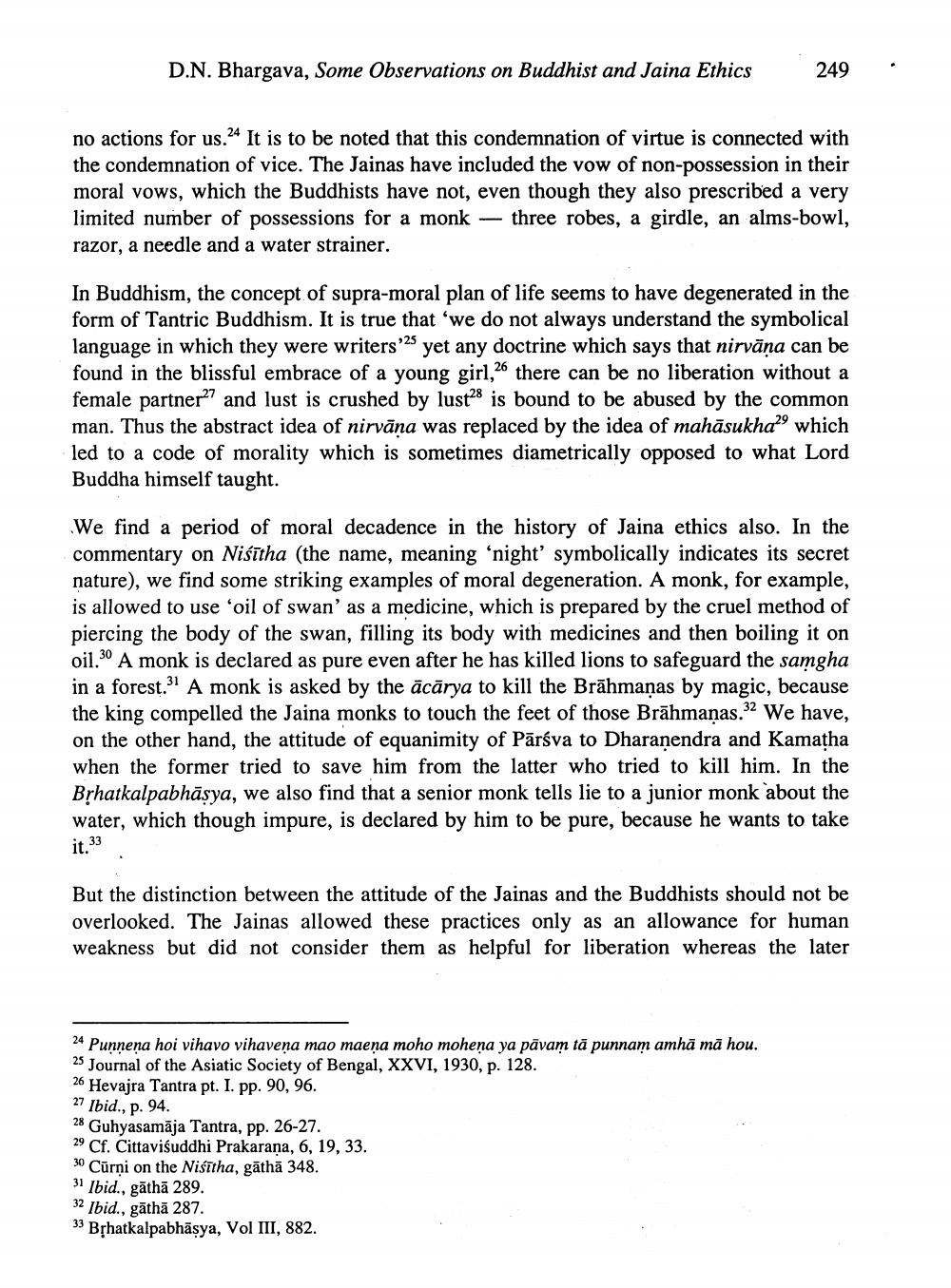________________
D.N. Bhargava, Some Observations on Buddhist and Jaina Ethics
249
.
no actions for us.24 It is to be noted that this condemnation of virtue is connected with the condemnation of vice. The Jainas have included the vow of non-possession in their moral vows, which the Buddhists have not, even though they also prescribed a very limited number of possessions for a monk — three robes, a girdle, an alms-bowl, razor, a needle and a water strainer.
In Buddhism, the concept of supra-moral plan of life seems to have degenerated in the form of Tantric Buddhism. It is true that 'we do not always understand the symbolical language in which they were writers 25 yet any doctrine which says that nirvāṇa can be found in the blissful embrace of a young girl,26 there can be no liberation without a female partner27 and lust is crushed by lust28 is bound to be abused by the common man. Thus the abstract idea of nirvāna was replaced by the idea of mahāsukha” which led to a code of morality which is sometimes diametrically opposed to what Lord Buddha himself taught.
We find a period of moral decadence in the history of Jaina ethics also. In the commentary on Niśītha (the name, meaning ‘night' symbolically indicates its secret nature), we find some striking examples of moral degeneration. A monk, for example, is allowed to use 'oil of swan' as a medicine, which is prepared by the cruel method of piercing the body of the swan, filling its body with medicines and then boiling it on oil.30 A monk is declared as pure even after he has killed lions to safeguard the samgha in a forest. A monk is asked by the ācārya to kill the Brāhmanas by magic, because the king compelled the Jaina monks to touch the feet of those Brāhmaṇas.32 We have, on the other hand, the attitude of equanimity of Pārsva to Dharanendra and Kamatha when the former tried to save him from the latter who tried to kill him. In the Brhatkalpabhāsya, we also find that a senior monk tells lie to a junior monk about the water, which though impure, is declared by him to be pure, because he wants to take it.33
But the distinction between the attitude of the Jainas and the Buddhists should not be overlooked. The Jainas allowed these practices only as an allowance for human weakness but did not consider them as helpful for liberation whereas the later
24 Punnena hoi vihavo vihaveņa mao maeņa moho mohena ya pāvam tā punnam amhā mā hou. 25 Journal of the Asiatic Society of Bengal, XXVI, 1930, p. 128. 26 Hevajra Tantra pt. I. pp. 90, 96. 27 Ibid., p. 94. 28 Guhyasamāja Tantra, pp. 26-27. 29 Cf. Cittavisuddhi Prakarana, 6, 19, 33. 30 Cūrņi on the Niśītha, gāthā 348. 31 Ibid., gāthā 289. 32 Ibid., gāthā 287. 33 BȚhatkalpabhāsya, Vol III, 882.




